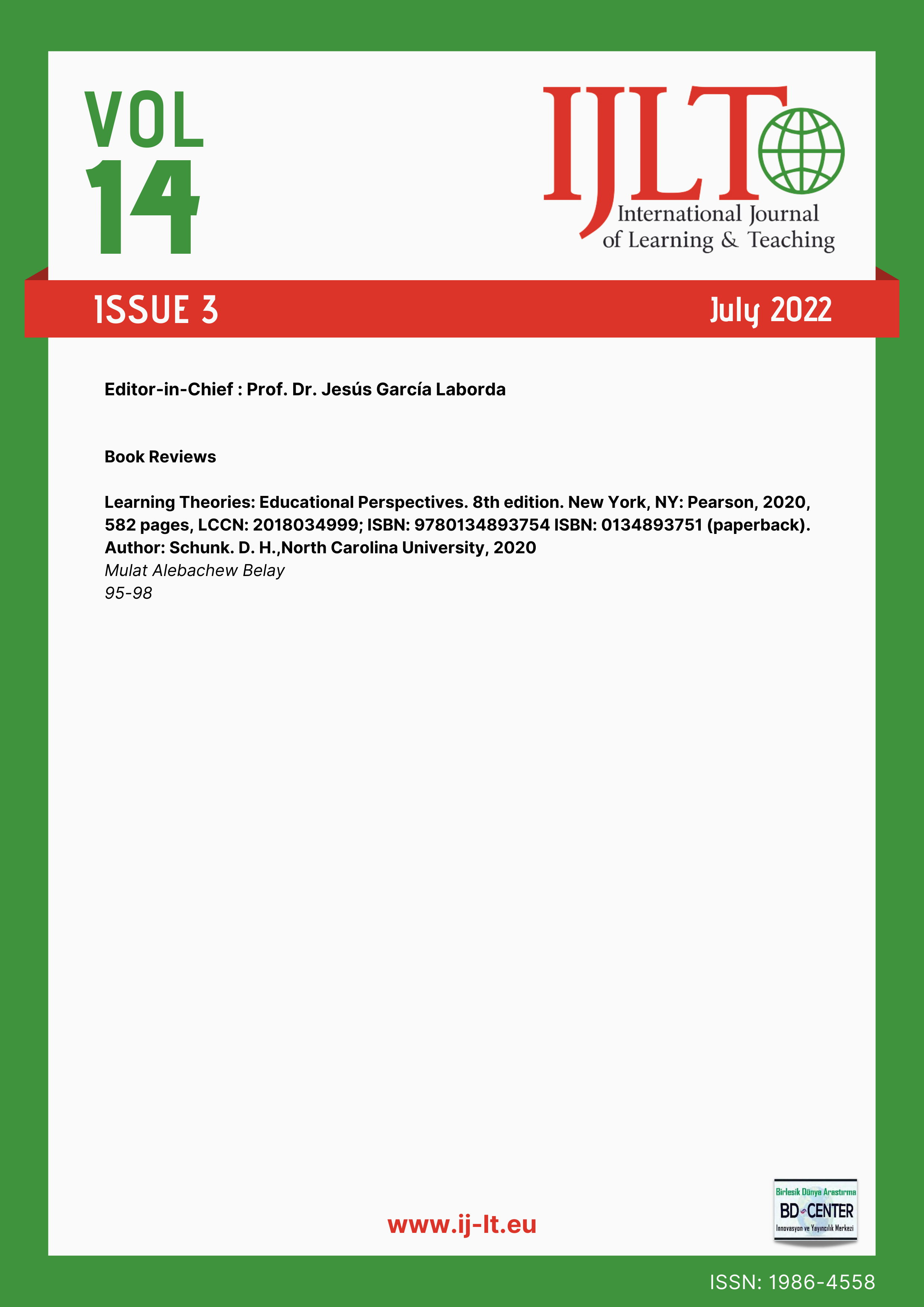Learning Theories: Educational Perspectives. 8th edition. New York, NY: Pearson, 2020, 582 pages, LCCN: 2018034999; ISBN: 9780134893754 ISBN: 0134893751 (paperback).Author: Schunk. D. H.,North Carolina University, 2020
Main Article Content
Abstract
The reviews were made on the book entitled “Learning Theories: An Educational Perspective” written by Schunk in 2020 which aimed at pinpointing important insights for readers. The review was made based on professional guidelines in reviewing books. The reviewers felt that the strengths of the book consist of addressing practical scenarios and objectives; and it explains vicarious and enactive learning, performance learning, self-regulatory learning, and positive effect of authentic modeling. On the other hand, the major limitations of the book include the criteria set to define learning was mainly in favor of behavioral learning theories which is against the notion of the book. There is also inconsistent organization and needless inclusion of contents. Therefore, the reviewers argued that the book is still recommended to education students, early-career researchers in psychology and education provided that the aforementioned limitations are corrected.
Keywords: Learning; Self-regulation; Motivation; Cognitive learning; Performance learning
Downloads
Article Details

This work is licensed under a Creative Commons Attribution 4.0 International License.
Authors who publish with this journal agree to the following terms:
- Authors retain copyright and grant the journal right of first publication with the work simultaneously licensed under a Creative Commons Attribution License that allows others to share the work with an acknowledgement of the work's authorship and initial publication in this journal.
- Authors are able to enter into separate, additional contractual arrangements for the non-exclusive distribution of the journal's published version of the work (e.g., post it to an institutional repository or publish it in a book), with an acknowledgement of its initial publication in this journal.
- Authors are permitted and encouraged to post their work online (e.g., in institutional repositories or on their website) prior to and during the submission process, as it can lead to productive exchanges, as well as earlier and greater citation of published work (SeeThe Effect of Open Access).
